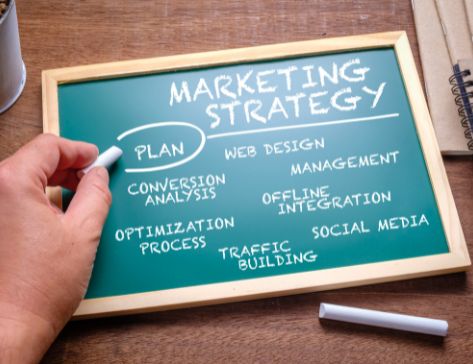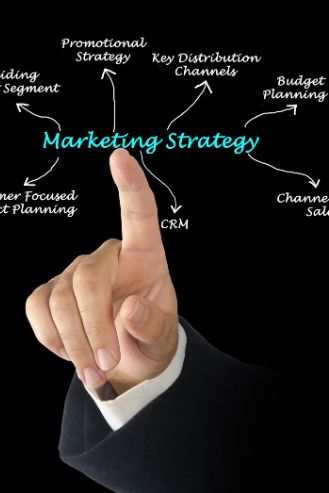
The Transformative Role of Machine Learning in Marketing Strategies
Machine learning in marketing has revolutionized how businesses connect with customers and optimize their marketing efforts. This powerful technology enables marketers to analyze vast amounts of data, predict consumer behavior, and deliver personalized experiences at scale. As digital touchpoints multiply and consumer expectations rise, machine learning has become an indispensable tool for forward-thinking marketing teams seeking competitive advantage.

Understanding Machine Learning in the Marketing Context
Machine learning (ML) is a subset of artificial intelligence that enables systems to learn and improve from experience without explicit programming. In marketing, ML algorithms analyze customer data to identify patterns, predict outcomes, and automate decision-making processes. Unlike traditional analytics, machine learning systems continuously improve their accuracy over time as they process more data, making them increasingly valuable marketing assets.
The core strength of ML in marketing lies in its ability to process and derive insights from diverse data sources simultaneously—website interactions, purchase history, social media engagement, demographic information, and more. This holistic view enables marketers to understand customers at an unprecedented level of detail and precision.
Key Applications of Machine Learning in Modern Marketing
1. Customer Segmentation and Targeting
Traditional customer segmentation relies on broad demographic categories that often miss nuanced behavioral differences. Machine learning algorithms can identify complex patterns in customer data to create micro-segments based on actual behavior rather than assumptions.
ML-powered segmentation enables marketers to:
- Identify previously unknown customer segments with unique needs
- Predict which segments will respond best to specific campaigns
- Dynamically adjust segments as customer behaviors evolve
- Target customers with unprecedented precision
2. Personalized Content and Product Recommendations
Personalization has moved from a nice-to-have to a marketing necessity. Machine learning powers recommendation engines that analyze individual user behavior to suggest relevant products, content, or services. These systems consider numerous factors including browsing history, purchase patterns, demographic information, and similarity to other users.
Effective ML-driven recommendation systems can:
- Increase average order value through relevant cross-selling
- Improve customer engagement by delivering personalized content
- Reduce bounce rates by showing visitors what they’re most likely to be interested in
- Create a sense of being understood that builds brand loyalty
3. Predictive Analytics for Marketing Optimization
Predictive analytics uses machine learning to forecast future outcomes based on historical data. For marketers, this capability is transformative, enabling data-driven decisions about everything from campaign timing to budget allocation.
Key applications include:
- Customer lifetime value prediction to focus resources on high-value prospects
- Churn prediction to identify at-risk customers before they leave
- Campaign performance forecasting to optimize marketing spend
- Predictive analytics for local marketing to tailor strategies to specific geographic areas
4. Automated Marketing Campaigns
Machine learning enables marketing automation that goes beyond simple rule-based systems. ML-powered automation can adapt to changing conditions, optimize for specific goals, and deliver personalized messaging at scale.
Examples include:
- Dynamic email campaigns that adjust content based on recipient behavior
- Automated social media posting optimized for engagement
- Chatbots that provide personalized customer service
- Programmatic advertising that optimizes ad placement and bidding in real-time
Implementing Machine Learning in Your Marketing Strategy: A Step-by-Step Guide
Step 1: Define Clear Objectives
Before implementing any ML solution, clearly define what you want to achieve. Common marketing objectives include:
- Increasing conversion rates
- Improving customer retention
- Enhancing personalization
- Optimizing marketing spend
- Streamlining customer journey
Step 2: Assess Your Data Readiness
Machine learning requires quality data to produce meaningful results. Evaluate your current data collection practices and address any gaps:
- Audit existing customer data sources and quality
- Implement robust data collection across all customer touchpoints
- Ensure proper data integration between systems
- Address privacy concerns and compliance requirements
Step 3: Start with Proven Use Cases
Begin with established ML applications that align with your objectives:
- Recommendation engines for e-commerce
- Predictive lead scoring for B2B
- Churn prediction models for subscription businesses
- Content personalization for media companies
- Native advertising optimization for improved campaign performance
Step 4: Build or Buy ML Solutions
Decide whether to develop in-house capabilities or leverage existing platforms:
- Marketing automation platforms with built-in ML capabilities
- Customer data platforms (CDPs) with predictive features
- Specialized ML solutions for specific marketing functions
- Custom development for unique business requirements
Step 5: Measure and Iterate
Continuously evaluate the performance of your ML implementations:
- Establish clear KPIs tied to your original objectives
- Implement A/B testing to validate ML-driven improvements
- Regularly retrain models with fresh data
- Gradually expand ML applications as you demonstrate success
Overcoming Common Challenges in Marketing ML Implementation
Data Quality and Integration Issues
Poor data quality can undermine even the most sophisticated ML algorithms. Common challenges include:
- Siloed data across different marketing platforms
- Inconsistent data collection practices
- Incomplete customer profiles
- Lack of historical data for training models
Solution: Invest in data infrastructure before scaling ML initiatives. Implement a customer data platform to unify information from multiple sources and establish data governance practices to ensure quality.
Skills Gap and Organizational Readiness
Many marketing teams lack the technical expertise to implement and manage ML solutions effectively.
Solution: Consider a hybrid approach that combines user-friendly ML platforms with targeted training for marketing staff. Partner with data science teams or external consultants for more complex implementations.
Balancing Automation and Human Creativity
Over-reliance on ML can lead to marketing that feels mechanical and lacks creative spark.
Solution: Use machine learning to handle data-intensive tasks and optimization, freeing human marketers to focus on strategy, creativity, and emotional connection with customers.
The Future of Machine Learning in Marketing
As ML technology continues to evolve, several emerging trends will shape its application in marketing:
1. Hyper-Personalization at Scale
Future ML systems will enable true one-to-one marketing across all channels, creating unique experiences for each customer while maintaining brand consistency.
2. Predictive Customer Journey Orchestration
ML will increasingly anticipate customer needs before they arise, enabling proactive marketing that addresses needs at precisely the right moment.
3. Augmented Creativity
AI and ML tools will assist marketers in content creation, from generating copy variations to designing visual assets optimized for specific audience segments.
4. Ethical AI and Privacy-Preserving ML
As privacy regulations tighten, new approaches to machine learning that protect consumer privacy while still delivering personalization will become essential.
Embracing the ML-Powered Marketing Revolution
Machine learning in marketing represents a fundamental shift in how businesses understand and engage with their customers. Organizations that successfully implement ML-driven marketing strategies gain significant competitive advantages: deeper customer insights, more efficient marketing operations, and the ability to deliver truly personalized experiences at scale.
The journey toward ML-powered marketing requires thoughtful planning, appropriate technology investments, and a commitment to data-driven decision making. By starting with clear objectives, ensuring data readiness, and incrementally building capabilities, marketers can harness the transformative potential of machine learning to drive meaningful business results.
As we look to the future, the organizations that will thrive are those that view machine learning not merely as a technical tool but as a core component of their marketing strategy—one that enables them to build stronger, more meaningful relationships with customers in an increasingly complex digital landscape.


